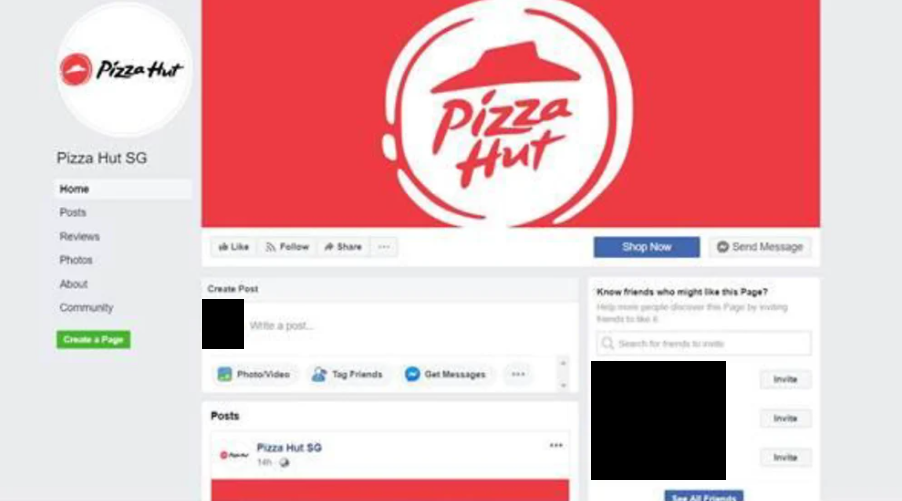It appears that the phishing industry is not letting the times get ahead of it.
According to the police, a phishing scam has emerged, and it’s in the form of an actual…
Fast food advertisement.
Yes folks, scammers are now using our favourite pizza slices against us.
Talk about innovation.
Police Warns About Fake Pizza Hut FB Page & Website That Looks Legit
A fake advertisement for fast food giant Pizza Hut has been circulating around the net.
The adverts are posted on social media platforms Facebook or Instagram, and purportedly offer “cheap Pizza Hut deals”.

Apparently, prospective victims were invited to click on embedded URLs within the advertisement, and were subsequently directed to a phoney Pizza Hut website.

They would then be prompted to place their pizza orders and key in their banking details and one-time passwords (OTP) to ‘cart out’.

“Most of the victims only realised that they have been scammed when they subsequently discovered unauthorised transactions in their bank accounts,” the police said.
Meanwhile, the authentic Pizza Hut has since issued a statement on its Facebook page.
All valid promotions, they clarified, will only be offered through their official Facebook page and website.
Crime Prevention Measures
In light of such offences, the police have urged members of the public to:
- Beware of URL links in unsolicited advertisements and text messages, particularly those that sound too good to be true
- Verify information first
- Refrain from giving their banking details and OTP to anyone
- Report any suspicious transaction to the service provider immediately
Those who have information on such cases can dial the police’s hotline at 1800-255-0000, or convey the information online at www.police.gov.sg/iwitness.
Scams
In spite of the pandemic, the scamming industry has somehow managed to flourish in 2020.
From January to April 2020, 5,425 scam cases were reported, with at least S$60.4 million exploited.
And of these, 394 belonged to Covid-19 related scams, which reportedly cheated at least S$1.4 million.
Tactics have also gotten increasingly ‘in-trend’. For example, the police had issued an advisory earlier this year, saying that scammers were pretending to be MOH employees.
They will purportedly transfer the call to “Chinese police”, who are supposedly investigating Covid-19 contraband medicine registered under the victims’ names.
From then, the “victims would be duped into believing that their identities had been misused and that they needed to provide personal information such as NRIC, passport details and Internet banking credentials for investigation in order to absolve themselves from any criminal offence.”
They added, “The victims were also instructed not to disclose any information, and were asked to contact the ‘Chinese police’ on a daily basis.”
Thankfully, however, our nation has managed to keep up with the times as well.
According to TODAYonline, the authorities managed to recover around 40% of the $52 million lost by victims, amounting to more than S$21.2 million.
In one case, where a French pharmaceutical company was duped out of S$10.2 million, the Anti-Scam centre managed to retrieve over S$6.4 million.
On 20 Nov 2020, the National Council for Crime Prevention (NCPC) also unveiled a new mobile app called Scam Shield – that can help defend users from scam calls and messages.
According to reports, the mobile app uses Artificial Intelligence (AI) to identify keywords in messages from unknown contacts.
Once identified, these messages will be moved into a “junk folder” created on your phone by the app, just like what email inboxes do.
Scam messages will be sent to NCPC and the SPF for collation, which, in turn, will help protect other users of the app from such scam calls and messages.
The app also allows users to report scam numbers and messages to the app, which will be added to the database.
To know more about scams, you might want to watch these videos we’ve done in collaboration with the Singapore Police Force:
Featured Image: Singapore Police Force




